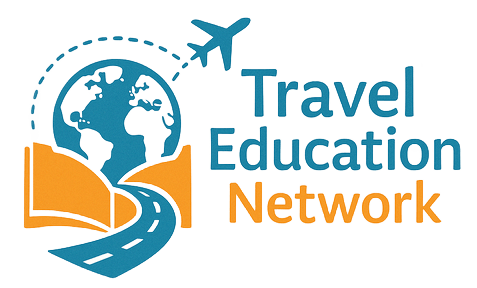Can an H4 Visa Holder Study in the USA? Everything You Need to Know
Are you an H-4 visa holder looking to unlock your potential in the United States? Discover the exciting educational opportunities available to you, from pursuing degrees at universities and community colleges to enhancing your skills at technical schools. Learn how you can study full-time or part-time, potentially qualify for in-state tuition, and even explore pathways to work authorization through an F-1 visa. This comprehensive guide provides valuable insights into navigating the H-4 visa landscape, empowering you to achieve your academic and career aspirations in the USA. Start your journey today!
Important information

- H-4 visa holders (dependents of H-1B visa holders) can study full-time or part-time in the US without needing a student visa.
- They can pursue education from elementary school up to university level, including vocational schools and community colleges.
- H-4 visa holders cannot work in the US unless they obtain an Employment Authorization Document (EAD).
- They may qualify for in-state tuition rates after fulfilling state residency requirements, which can significantly reduce education costs.
- H-4 visa holders can transition to an F-1 student visa, which allows for work opportunities like CPT and OPT.
Understanding the H-4 Visa and Study Opportunities
The H-4 visa allows dependents, such as spouses and children of H-1B visa holders, to reside in the US. This enables families to stay together while the H-1B visa holder works. It also provides H-4 visa holders with opportunities for personal and professional development, such as pursuing education.
What is an H-4 Visa and Who Qualifies?
The H-4 visa allows close family members of H-1B visa holders, such as spouses and children under 21, to reside in the US. H-4 dependents can pursue studies while in the country, provided the H-1B visa holder maintains their status and the children remain under 21.
Study Opportunities for H-4 Visa Holders in the USA
H-4 visa holders have excellent educational opportunities in the US. They can enroll in various programs, such as community colleges and technical schools, without changing their visa status. They can pursue their studies full-time or part-time, furthering their education while residing in the US with their H-1B spouse or parent. Eligible H-4 visa holders may even qualify for in-state tuition at public universities.
Can H-4 Visa Holders Study in the USA?
H-4 visa holders have the freedom to pursue education in the US, from elementary school to higher education, including universities, colleges, and vocational schools. They can study full-time or part-time without needing an additional visa.
- This flexibility allows them to tailor their studies to their individual needs, unlike F-1 visa holders who typically must maintain full-time enrollment.
- A wide range of educational paths are open to them, including community and technical colleges.
- While H-4 status generally doesn’t impact university admissions, prospective students should always confirm specific requirements with each institution.
It’s important to remember that H-4 visa holders cannot work without obtaining specific authorization. This means they need to secure the necessary work permits before they can be employed in the United States.
Full-time and Part-time Study Options
H-4 visa holders can pursue part-time or full-time studies in the US, and they can even take multiple courses at the same time. However, their ability to stay in the US depends on the H-1B visa holder’s status. Any changes to the primary H-1B visa can directly affect the dependent H-4 visa. While H-4 visa holders can study, they cannot work on campus, unlike F-1 visa holders. This restriction limits their options while in the US.
Enrollment in Community Colleges and Technical Colleges
H-4 visa holders can pursue studies at community and technical colleges without needing an F-1 student visa. These institutions offer vocational programs and associate degrees, enhancing career prospects and skill development. Studying on an H-4 provides flexibility, but it’s essential to be aware of the visa’s restrictions. While employment is prohibited, H-4 holders can acquire valuable skills through education, preparing them for future career opportunities. This allows them to enhance their skillset and potentially improve their career prospects once they are eligible for employment.
Impact of H-4 Visa on University Admissions
H-4 visa holders can pursue education in the United States. Admission depends on meeting each university’s specific requirements. These requirements often include standardized tests like the TOEFL, GRE, or GMAT. Further prerequisites may also exist. Educational paths available to H-4 visa holders range from community colleges and universities to technical schools. Thorough research into each institution’s criteria is essential before applying.
Challenges and Limitations for H-4 Visa Holders
Securing an H-4 visa presents unique challenges for those wishing to study and work in the United States. H-4 visa holders cannot work without first obtaining an Employment Authorization Document (EAD), a significant obstacle for many. University admission also poses difficulties, as international student requirements, such as standardized tests and transcript submissions, often apply. Furthermore, an applicant’s H-4 status itself can be a factor in admission decisions. The following challenges are often encountered:
Employment Restrictions
Obtaining an Employment Authorization Document (EAD) is essential for H-4 visa holders seeking employment in the U.S. This process can be complex and time-consuming, creating a barrier to financial independence.
University Admission Challenges
H-4 visa holders face the same admission requirements as other international students, including standardized tests and transcript evaluations. Their H-4 status may also influence admission decisions, adding another layer of complexity.
Employment Restrictions While Studying
The H-4 visa allows spouses and unmarried children (under 21) of H-1B visa holders to live in the US. The H-1B visa is a non-immigrant visa that permits US companies to employ foreign workers in specialized roles. If an H-1B visa holder works in the US, their family can join them on an H-4 visa. H-4 visa holders were initially unable to work, but this changed in 2015. Now, eligible dependents can apply for Employment Authorization Documents (EADs). For example, if the H-1B holder has an approved I-140 (Immigrant Petition for Alien Worker), their H-4 dependent may be eligible to work. Similarly, if the H-1B holder is pursuing a green card through specific employment-based categories, their dependent might also qualify for an EAD, allowing them to work and gain more independence.
Meeting Admission Policies: Tests and Requirements
Prospective H-4 visa holders must fulfill certain university requirements, including English proficiency tests like the TOEFL or IELTS. Applicants also need academic transcripts and residency documentation. Because these prerequisites differ among institutions, checking with the specific university is essential.
Financial Considerations for H-4 Visa Holders
Depending on the state, H-4 visa holders can often qualify for in-state tuition, significantly lowering their education costs. While financial aid is generally limited, and dedicated scholarships are rare, private scholarships and grants can help bridge the funding gap. Combining in-state tuition with these alternative funding sources can create substantial savings.
Though H-4 visa holders initially pay higher, non-resident tuition fees, typically for their first year, they often become eligible for lower resident rates after that, leading to a considerable decrease in educational expenses.
Eligibility for In-State Tuition
H-4 visa holders married to H-1B visa holders may qualify for in-state tuition. This generally requires at least one year of state residency and supporting documentation. Your spouse’s H-1B tax documents will also be necessary. However, because requirements vary by state and university, carefully review the specific policies of your chosen institution.
Applying for Financial Aid and Scholarships
Funding education on an H-4 visa can be tricky, but there are alternatives to federal aid. Scholarships are available from both colleges and private organizations. Private grants offer another avenue for financial support. These options can help H-4 visa holders achieve their educational aspirations.
Cost Benefits of Studying on an H-4 Visa
H-4 visa holders can often significantly reduce their college expenses. After a year of in-state residency, they typically qualify for resident tuition rates at public colleges and universities, making higher education more accessible. These savings can be substantial compared to out-of-state or international student tuition. Some private institutions also offer scholarships or discounted tuition for H-4 dependents. It’s always worth checking directly with each school, as policies regarding residency and financial aid can differ. For instance, some states have unique residency stipulations. Thorough research is essential.
Reducing College Expenses for H-4 Visa Holders
H-4 visa holders can often significantly reduce their college expenses by establishing in-state residency. After one year of residing in-state, they typically qualify for in-state tuition rates at public colleges and universities. This can lead to substantial savings compared to out-of-state or international student tuition.
Exploring Options and Resources
While in-state tuition benefits primarily apply to public institutions, some private colleges and universities may also offer scholarships or discounted tuition rates for H-4 dependents. It’s recommended to contact schools directly to inquire about their specific policies regarding residency and financial aid for H-4 visa holders, as these policies can vary. Additionally, be aware that residency requirements may differ between states. Thorough research and direct inquiry are essential for maximizing potential savings.
Transitioning from H-4 to F-1 Visa
Transitioning from an H-4 to an F-1 visa involves several key steps.
Select a SEVP-certified school and obtain your I-20 form.
Pay the I-901 SEVIS fee.
Schedule your visa interview at a U.S. embassy or consulate.
F-1 Visa Benefits
- Optional Practical Training (OPT): Offers practical work experience related to your field of study.
- Curricular Practical Training (CPT): Provides opportunities for work experience integrated with your curriculum.
H-4 vs. F-1
While H-4 visa holders can study, they are not authorized to work. The F-1 visa empowers H-4 dependents to pursue academic and career goals, opening doors to a wider range of opportunities.
Steps to Transition to an F-1 Visa
Changing from an H-4 to an F-1 visa involves several steps. First, secure admission to a Student and Exchange Visitor Program (SEVP) certified school. The school will then issue you Form I-20, your “Certificate of Eligibility.” Next, file Form I-539, “Application to Extend/Change Nonimmigrant Status,” with United States Citizenship and Immigration Services (USCIS). Include proof of your financial stability and other supporting documents. A visa interview at a U.S. embassy or consulate might be required. It’s crucial to maintain your H-4 status until the F-1 is approved.
Get accepted into a Student and Exchange Visitor Program (SEVP) certified school.
Receive Form I-20, “Certificate of Eligibility,” from your school.
File Form I-539, “Application to Extend/Change Nonimmigrant Status,” with USCIS. Include proof of financial stability and other required documents.
You might need to attend a visa interview at a U.S. embassy or consulate.
Maintain your H-4 status until your F-1 visa is approved.
Benefits of an F-1 Visa: OPT and CPT Work Opportunities
F-1 visa students have several valuable work opportunities. While studying, they can gain practical experience through Curricular Practical Training (CPT), which allows them to work in their field of study. After graduation, Optional Practical Training (OPT) authorizes employment for 12 months, or 36 months for those in STEM fields. These programs significantly enhance both practical experience and post-graduation employability.















